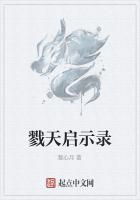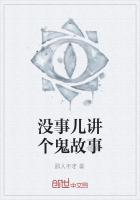"I never thought it would be hard work taking care of a baby," replied Eudora, "and especially such a very light baby."
Something whimsical crept into Eudora's voice; something whimsical crept into the love-light of the other women's eyes.
Again a soft ripple of mirth swept over them.
"Especially a baby who never cries," said Amelia.
"No, he never does cry," said Eudora, demurely.
They laughed again. Then Amelia rose and left the room to get the tea-things. The old serving-woman who had lived with them for many years was suffering from rheumatism, and was cared for by her daughter in the little cottage across the road from the Lancaster house. Her husband and grandson were the man and boy at work in the grounds. The three sisters took care of themselves and their house with the elegant ease and lack of fluster of gentlewomen born and bred. Miss Amelia, bringing in the tea-tray, was an unclassed being, neither maid nor mistress, but outranking either. She had tied on a white apron. She bore the silver tray with an ease which bespoke either nerve or muscle in her lace-draped arms.
She poured the tea, holding the silver pot high and letting the amber fluid trickle slowly, and the pearls and diamonds on her thin hands shone dully. Sophia passed little china plates and fringed napkins, and Anna a silver basket with golden squares of sponge-cake.
The ladies ate and drank, and the blue and white bundle on the sofa remained motionless. Eudora, after she had finished her tea, leaned back gracefully in her chair, and her dark eyes gleamed with its mild stimulus. She remained an hour or more.
When she went out, Amelia slipped an envelope into her hand and at the same time embraced and kissed her. Sophia and Anna followed her example. Eudora opened her mouth as if to speak, but smiled instead, a fond, proud smile. During the last fifteen minutes of her stay Amelia had slipped out of the room with the blue and white bundle. Now she brought it out and laid it carefully in the carriage.
"We are always so glad to see you, dearest Eudora," said she, "but you understand --"
"Yes," said Sophia, "you understand, Eudora dear, that there is not the slightest haste."
Eudora nodded, and her long neck seemed to grow longer.
When she was stepping regally down the path, Amelia said in a hasty whisper to Sophia: "Did you tell her?"
Sophia shook her head. "No, sister."
"I didn't know but you might have, while I was out of the room."
"I did not," said Sophia. She looked doubtfully at Amelia, then at Anna, and doubt flashed back and forth between the three pairs of blue eyes for a second. Then Sophia spoke with authority, because she was the only one of them all who had entered the estate of matrimony, and had consequently obvious cognizance of such matters.
"I think," said she, "that Eudora should be told that Harry Lawton has come back and is boarding at the Wellwood Inn."
"You think," faltered Amelia, "that it is possible she might meet him unexpectedly?"
"I certainly do think so. And she might show her feelings in a way which she would ever afterward regret."
"You think, then, that she --"
Sophia gave her sister a look. Amelia fled after Eudora and the baby-carriage. She overtook her at the gate. She laid her hand on Eudora's arm, draped with India shawl.
"Eudora!" she gasped.
Eudora turned her serene face and regarded her questioningly.
"Eudora," said Amelia, "have you heard of anybody's coming to stay at the inn lately?"
"No," replied Eudora, calmly. "Why, dear?"
"Nothing, only, Eudora, a dear and old friend of yours, of ours, is there, so I hear."
Eudora did not inquire who the old friend might be. "Really?" she remarked. Then she said, "Goodby, Amelia dear," and resumed her progress with the baby-carriage.














